
Keywords: Pest management

|
Protecting the peppers: Unlocking the potential of the sterile insect techniqueSociety of Chemical Industry, Phys.org, 2024.
For the first time, researchers in Canada have investigated the use of the sterile insect technique for controlling populations of the pepper weevil, Anthonomus eugenii, an economically significant crop pest in North America. The paper, published in Pest Management Science, ... Keywords: Biodiversity conservation, conservation, CRISPR, Culex quinquefasciatus, Gene drive, gene drive natural, gene drive synthetic, genetic biocontrol, invasive species, island invasive, mice, mus-musculus, Pest management, population eradication, restoration, Sry, t haplotype |

|
Revolutionizing Livestock Biosecurity: Using CRISPR Technology to Combat the New World ScrewwormDr. Jessica Nelson, Medriva, 2024.
The New World screwworm, a persistent parasite responsible for significant damage to the global livestock industry, may soon meet its match. Researchers at Uruguay's National Institute of Agricultural Research (INIA) have developed a gene drive using CRISPR technology to combat ... Keywords: Biodiversity conservation, conservation, CRISPR, Culex quinquefasciatus, Gene drive, gene drive natural, gene drive synthetic, genetic biocontrol, invasive species, island invasive, mice, mus-musculus, Pest management, population eradication, restoration, Sry, t haplotype |
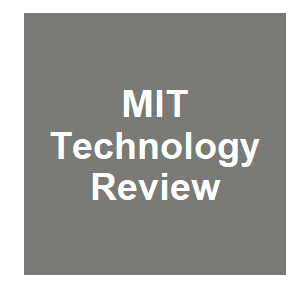
|
Uruguay wants to use gene drives to eradicate devastating screwwormsAbdullahi Tsanni, MIT Technology Review, 2024.
On a warm, sunny day in Montevideo, Uruguay, the air is smogless and crisp. Inside a highly secured facility at the National Institute of Agricultural Research (INIA) are a sophisticated gene gun, giant microscopes, and tens of thousands of gene-edited flies, their bright blue ... Keywords: Biodiversity conservation, conservation, CRISPR, Culex quinquefasciatus, Gene drive, gene drive natural, gene drive synthetic, genetic biocontrol, invasive species, island invasive, mice, mus-musculus, Pest management, population eradication, restoration, Sry, t haplotype |

|
CRISPR/Cas9: a cutting-edge solution for combatting the fall armyworm, Spodoptera frugiperdaGouda, M.N.R., Jeevan, H., Shashank, H.G., Molecular Biology Reports, 51. 2023.
The utilization of CRISPR/Cas9 in Spodoptera frugiperda, commonly known as fall armyworm, presents a groundbreaking avenue for pest management. With its ability to precisely modify the insect’s genome, CRISPR/Cas9 offers innovative strategies to combat this destructive pest. ... Keywords: Biodiversity conservation, conservation, CRISPR, Culex quinquefasciatus, Gene drive, gene drive natural, gene drive synthetic, genetic biocontrol, invasive species, island invasive, mice, mus-musculus, Pest management, population eradication, restoration, Sry, t haplotype |
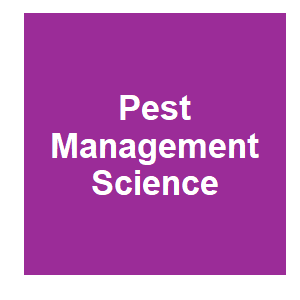
|
Assessing the sterility and quality of gamma-irradiated pepper weevils, Anthonomus eugenii (Coleoptera: Curculionidae), toward the development of the sterile insect techniqueBasso, J.V., Labbe, R. and Scott-Dupree, C., Pest Management Science, 2023.
The pepper weevil (PW), Anthonomus eugenii, is an economically significant pest of cultivated Capsicum spp. pepper crops in North America where it remains a challenge to manage because of its cryptic immature life stages. The sterile insect technique (SIT) is a genetic pest ... Keywords: Biodiversity conservation, conservation, CRISPR, Culex quinquefasciatus, Gene drive, gene drive natural, gene drive synthetic, genetic biocontrol, invasive species, island invasive, mice, mus-musculus, Pest management, population eradication, restoration, Sry, t haplotype |

|
Side effects of X-ray irradiation on flight ability of Cydia pomonella mothHuang, S.-W., Zhang, J.-H., Wei, Z.-H., Yang, X.-M., Wang, X.-Y. and Yang, X.-Q., Pest Management Science, 2023.
The sterile insect technique (SIT) has proven to be an effective approach in managing the population of major invasive pests Our previous studies showed that irradiation of males at a dosage of 366 Gy X-rays resulted in complete sterility. However, the mating competitiveness of ... Keywords: Biodiversity conservation, conservation, CRISPR, Culex quinquefasciatus, Gene drive, gene drive natural, gene drive synthetic, genetic biocontrol, invasive species, island invasive, mice, mus-musculus, Pest management, population eradication, restoration, Sry, t haplotype |
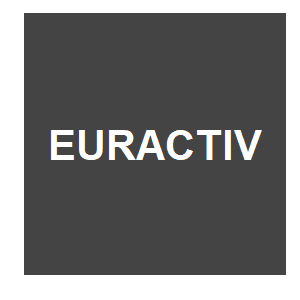
|
Further guidance required for assessment of gene drive technology, says EFSAN. Foote, Euractiv, 2020.
After being mandated by the European Commission, EFSA’s experts on genetically modified organisms (GMOs) published the scientific opinion related to engineered gene drives on Thursday (12 November), specifically focusing on gene drive modified disease-transmitting insects, ... Keywords: Biodiversity conservation, conservation, CRISPR, Culex quinquefasciatus, Gene drive, gene drive natural, gene drive synthetic, genetic biocontrol, invasive species, island invasive, mice, mus-musculus, Pest management, population eradication, restoration, Sry, t haplotype |
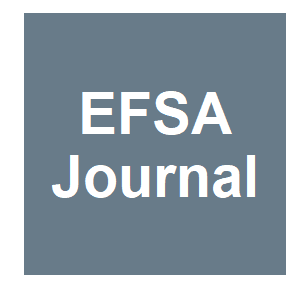
|
Adequacy and sufficiency evaluation of existing EFSA guidelines for the molecular characterisation, environmental risk assessment and post-market environmental monitoring of genetically modified insects containing engineered gene drivesE. Panel o. G. M. Organisms, H. Naegeli, J.-L. Bresson, T. Dalmay, I. C. Dewhurst, M. M. Epstein, P. Guerche, J. Hejatko, F. J. Moreno, E. Mullins, F. Nogué, N. Rostoks, J. J. Sánchez Serrano, G. Savoini, E. Veromann, F. Veronesi, M. B. Bonsall, J. Mumfor, EFSA Journal, 18:e06297. 2020.
As a proactive measure, the European Food Safety Authority (EFSA) has been requested by the European Commission to review whether its previously published guidelines for the risk assessment of genetically modified animals (EFSA, 2012 and 2013), including insects (GMIs), are ... Keywords: Biodiversity conservation, conservation, CRISPR, Culex quinquefasciatus, Gene drive, gene drive natural, gene drive synthetic, genetic biocontrol, invasive species, island invasive, mice, mus-musculus, Pest management, population eradication, restoration, Sry, t haplotype |

|
EFSA advises on risk assessment of engineered gene drivesEFSA, European Food and Safety Authority, 2020.
EFSA’s existing guidelines for the risk assessment of genetically modified animals are adequate for evaluating risks associated with gene drive modified insects. However, further guidance is needed for some areas, such as molecular characterisation, environmental risk ... Keywords: Biodiversity conservation, conservation, CRISPR, Culex quinquefasciatus, Gene drive, gene drive natural, gene drive synthetic, genetic biocontrol, invasive species, island invasive, mice, mus-musculus, Pest management, population eradication, restoration, Sry, t haplotype |
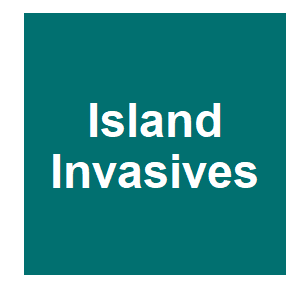
|
Genetic pest management technologies to control invasive rodentsD. Kanavy and D. Threadgill, Island invasives: scaling up to meet the challenge, 2019.
Many strategies exist to manage invasive pests on islands, ranging from poison to trapping, with varying degrees of success. Genetic technologies are increasingly being applied to insect pests, but so far, not to vertebrates. We are implementing a genetic strategy to eradicate ... Keywords: Biodiversity conservation, conservation, CRISPR, Culex quinquefasciatus, Gene drive, gene drive natural, gene drive synthetic, genetic biocontrol, invasive species, island invasive, mice, mus-musculus, Pest management, population eradication, restoration, Sry, t haplotype |

|
Trialling gene drives to control invasive species: what, where and how?T. Harvey-Samuel, K. J. Campbell, M. Edgington and L. Alphey, Island invasives: scaling up to meet the challenge, 2019.
The control of invasive species would be enhanced through the addition of novel, more effective and sustainable pest management methods. One control option yet to be trialled in the field is to deploy transgene-based ‘Gene Drives’: technologies which force the inheritance of ... Keywords: Biodiversity conservation, conservation, CRISPR, Culex quinquefasciatus, Gene drive, gene drive natural, gene drive synthetic, genetic biocontrol, invasive species, island invasive, mice, mus-musculus, Pest management, population eradication, restoration, Sry, t haplotype |

|
Towards a genetic approach to invasive rodent eradications: assessing reproductive competitiveness between wild and laboratory miceM. Serr, N. Heard and J. Godwin, Island invasives: scaling up to meet the challenge, 2019.
House mice are significant invasive pests, particularly on islands without native mammalian predators. As part of a multi-institutional project aimed at suppressing invasive mouse populations on islands, we aim to create heavily male-biased sex ratios with the goal of causing the ... Keywords: Biodiversity conservation, conservation, CRISPR, Culex quinquefasciatus, Gene drive, gene drive natural, gene drive synthetic, genetic biocontrol, invasive species, island invasive, mice, mus-musculus, Pest management, population eradication, restoration, Sry, t haplotype |

|
A potential new tool for the toolbox: assessing gene drives for eradicating invasive rodent populationsK. J. Campbell, J. R. Saah, P. R. Brown, J. Godwin, F. Gould, G. R. Howald, A. Piaggio, P. Thomas, D. M. Tompkins, D. Threadgill, J. Delborne, D. Kanavy, T. Kuiken, H. Packard, M. Serr and A. Shiels, Island invasives: scaling up to meet the challenge, 2019.
Invasive rodents have significant negative impacts on island biodiversity. All but the smallest of rodent eradications currently rely on island-wide rodenticide applications. Although signifi cant advances have been made in mitigating unintended impacts, rodent eradication on ... Keywords: Biodiversity conservation, conservation, CRISPR, Culex quinquefasciatus, Gene drive, gene drive natural, gene drive synthetic, genetic biocontrol, invasive species, island invasive, mice, mus-musculus, Pest management, population eradication, restoration, Sry, t haplotype |
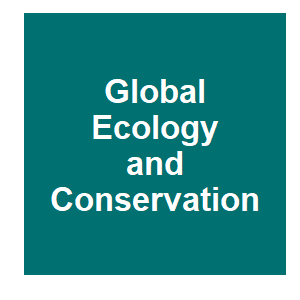
|
Identifying knowledge gaps for gene drive research to control invasive animal species: The next CRISPR stepMoro, DB, Margaret; Kennedy, Malcolm; Campbell, Susan; Tizard, Mark, Global Ecology and Conservation, 13:e00363. 2018.
Invasive animals have been linked to the extinctions of native wildlife, and to significant agricultural financial losses or impacts. Current approaches to control invasive species require ongoing resources and management over large geographic scales, and often result in the ... Keywords: Biodiversity conservation, conservation, CRISPR, Culex quinquefasciatus, Gene drive, gene drive natural, gene drive synthetic, genetic biocontrol, invasive species, island invasive, mice, mus-musculus, Pest management, population eradication, restoration, Sry, t haplotype |

Contact
David O’Brochta
Foundation for the
National Institutes of Health
geneconvenevi@fnih.org
RSS

